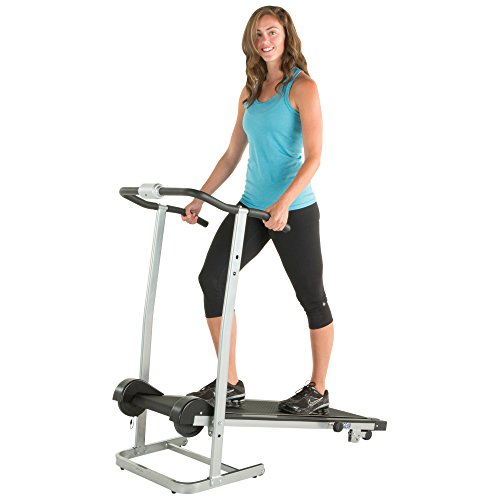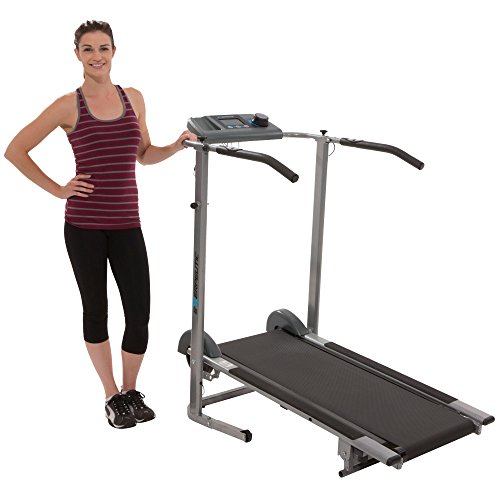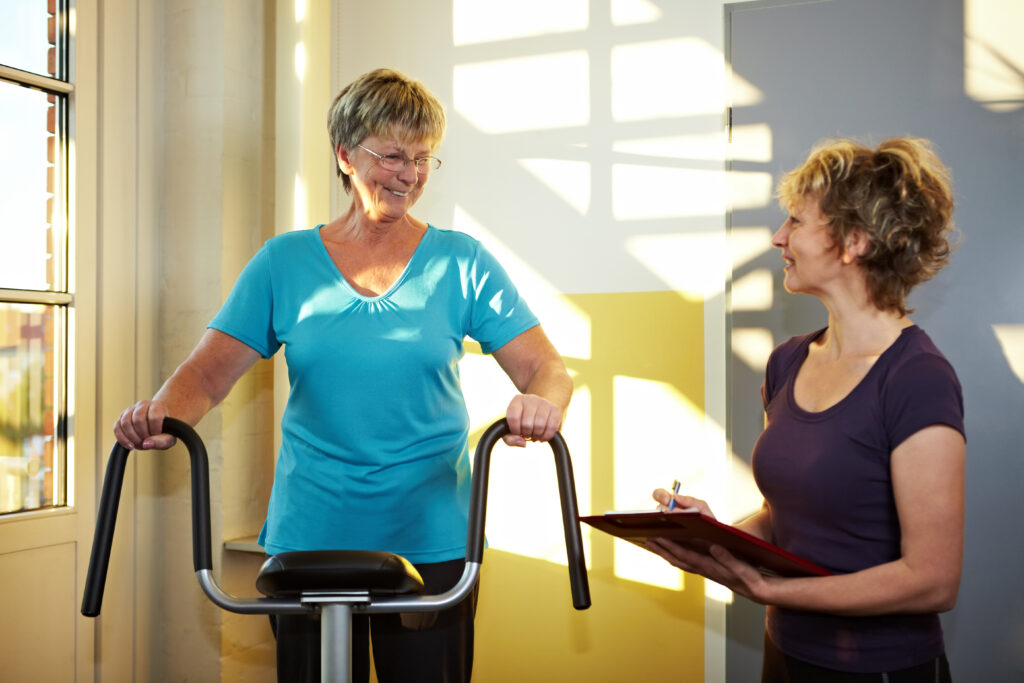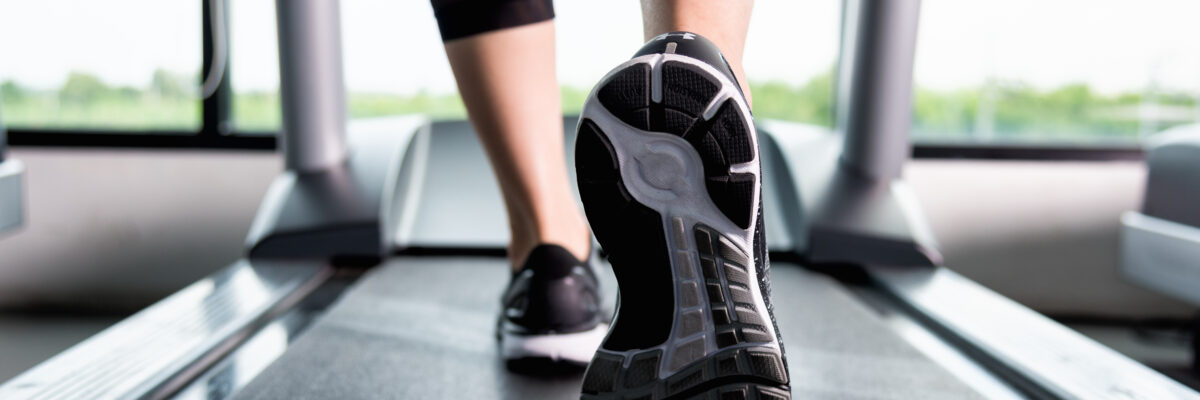Best Manual Treadmills: Run Towards Your Goals
We have reviewed hundreds of treadmills so that you can purchase the perfect one for your needs. Our team of experts has assessed each manual treadmills quality, durability, and performance to give you this list.
kotia Manual Treadmill Non Electric Treadmill with 10° Incline Small Foldable Treadmill for Apartment Home Walking Running (Mode GHN213)
Best overall
If you are looking for a good quality manual treadmill that is easy to move, has adjustable incline and is comfortable to use, the elegant Kotia GHN213 won’t disappoint.
Pros
- Easy to move
- Maximum weight: over 100kg
- LCD monitor
- Adjustable incline
Cons
- Won’t fit under furniture when folded
Sunny Health & Fitness SF-T1407M Foldable Compact Manual Treadmill with LCD Monitor
Best for small spaces
The Sunny Health & Fitness SF-T1407M is compact, foldable and lightweight, which makes it the best manual treadmill for small spaces.
Pros
- Maximum weight: 100kg
- Compact
- LCD monitor
Cons
- The incline is not adjustable
Progear 190 Manual Treadmill with 2 Level Incline and Twin Flywheels
Budget pick
For those who are on a budget and wish to improve their health, the WOLFMATE MND-Y600B-1 will be a great purchase!
Pros
- Adjustable incline
- Maximum weight: 104kg
- Safe use design
- Smooth and consistent walking experience
- Features 2 position incline levels
Cons
- Not suitable for jogging
Sunny Health&Fitness Force Fitmill Manual Treadmill with High Weight Capacity, 16 Levels of Resistance and Dual Flywheel
Best curved
If you want a treadmill that will help you to reach maximum intensity training, the Sunny Health & Fitness Force is for you! Easy to use and multifunctional - suitable for everyone!
Pros
- Adjustable resistance
- Multi-grip ramps
- Adjustable incline
- Maximum weight: 136kg
Cons
- Doesn’t have an LCD display
EXERPEUTIC 100Xl High Capacity Magnetic Resistance Manual Treadmill with Heart Pulse System, Black, One Size
Also good
The Exerpeutic 100XL manual treadmill has been tested with up to 148kg user weight, which makes it a good fit for every age and body type.
Pros
- Adjustable incline
- LCD display
- Maximum weight: 148kg
Cons
- Not the best quality display
Manual treadmill buying guide
With the fast-paced lifestyle of today’s society, people are becoming increasingly concerned about their health and fitness. However, not everyone has the time or money to go to the gym regularly. That’s where manual treadmills come in. A manual treadmill is an affordable and space-saving alternative to motorized treadmills. It allows you to run or walk indoors at your convenience, without having to go outside or pay for a gym membership. In this buying guide, we’ll discuss the benefits of a manual treadmill, factors to consider before purchasing one, and some tips to make the most out of your purchase.

Benefits of a manual treadmill
Manual treadmills have several advantages over motorized treadmills. Firstly, they’re much cheaper than their motorized counterparts. You can get a good quality manual treadmill for as little as $100. In contrast, a decent motorized treadmill can cost upwards of $1000. Secondly, manual treadmills are much simpler in design. They have fewer moving parts, which means they’re less likely to break down or need repairs. This makes them a more reliable option in the long run. Thirdly, manual treadmills are space-saving. They’re typically smaller and more compact than motorized treadmills, which makes them ideal for people who live in small apartments or have limited space in their home gym.
5 Factors to consider before buying a manual treadmill
1. Size
Manual treadmills come in different sizes. Consider the size of the treadmill you need based on your height and the available space in your home.
2. Weight capacity
Make sure to check the weight capacity of the manual treadmill. Most manual treadmills can support up to 250 pounds, but some models can handle more weight than that.
3. Incline
Unlike motorized treadmills, manual treadmills don’t have automatic incline adjustments. Instead, you’ll have to manually adjust the incline level yourself. If you’re planning on doing high-intensity workouts, you’ll want a manual treadmill that offers a steep incline. If you’re just looking for a basic workout, then a manual treadmill with a low or no incline should be sufficient.
4. Belt size
The belt size of the manual treadmill is also an important consideration. The belt should be wide enough to accommodate your stride length comfortably. Ideally, the belt should be at least 16 inches wide and 45 inches long.
5. Stability
Manual treadmills can be less stable than motorized treadmills, which means you’ll need to pay extra attention to the stability of the unit. Look for a manual treadmill with a sturdy frame, non-slip base, and handlebars for added support.
Tips for using a manual treadmill
- Warm Up: Before you start your workout, make sure to warm up properly. Stretch your muscles and do some light jogging or walking to get your body ready for the workout.
- Start Slow: It’s important to start slow and gradually increase your speed and intensity. This will help prevent injury and ensure you don’t burn out too quickly.
- Use Proper Form: When using a manual treadmill, make sure to use proper form. Keep your back straight, your shoulders relaxed, and your feet landing squarely on the treadmill belt.
- Track Your Progress: To stay motivated and track your progress, keep a record of your workouts. This will help you see how far you’ve come and provide a sense of accomplishment.
Conclusion
A manual treadmill is an excellent investment for anyone who wants to stay fit and healthy but doesn’t have the time or money for a gym membership or a motorized treadmill. They’re affordable, space-saving, and reliable. Remember to warm up, start slow, use proper form, and track your progress to get the most out of your manual treadmill. With these tips and considerations in mind, you can make an informed decision and enjoy the benefits of a manual treadmill for years to come.


